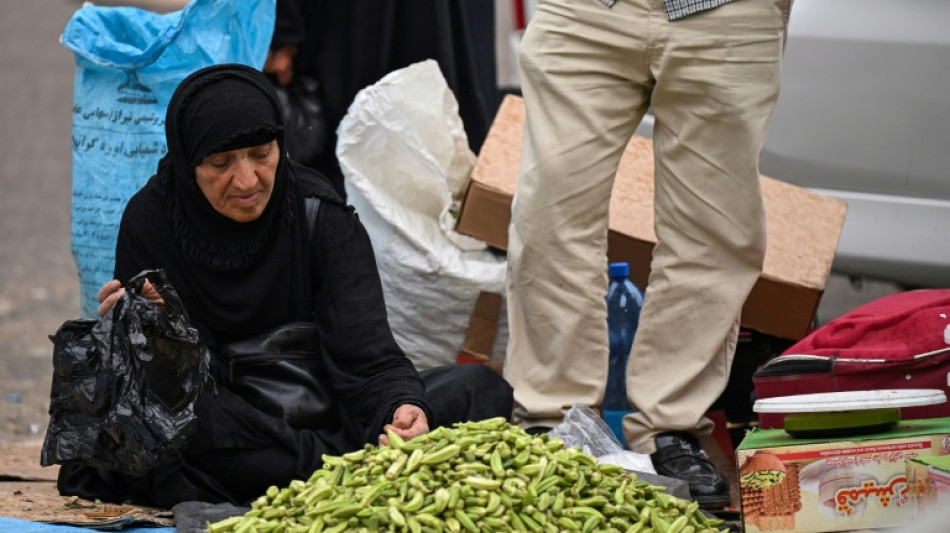
-
 'Shared dream': China celebrates Zhao's world snooker breakthrough
'Shared dream': China celebrates Zhao's world snooker breakthrough
-
Wait for Vatican white smoke fires up social media
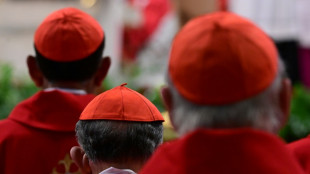
-
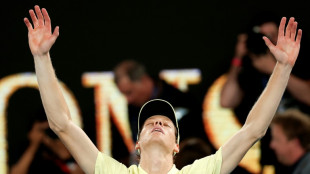 Sinner leading the charge in golden era for Italian tennis
Sinner leading the charge in golden era for Italian tennis
-
Donnarumma stands tall on PSG's Champions League run

-
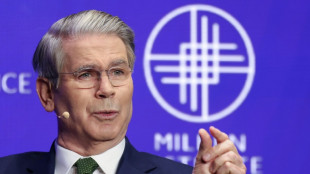 Dollar recovers some losses, stocks gain as traders eye tariff deals
Dollar recovers some losses, stocks gain as traders eye tariff deals
-
US aid cuts push Bangladesh's health sector to the edge
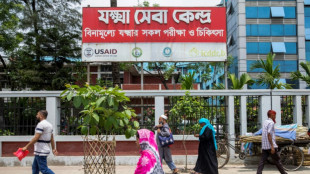
-
 Prayers, pride in Philippine papal contender's hometown
Prayers, pride in Philippine papal contender's hometown
-
Germany's Merz to launch new govt in times of Trump turbulence
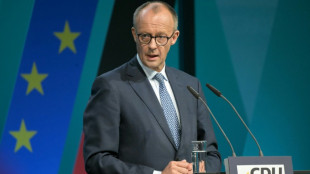
-
 Brunson sparks Knicks in comeback win over Celtics
Brunson sparks Knicks in comeback win over Celtics
-
All roads lead to Rome Open for Sinner after doping ban

-
 French Resistance members reunited 80 years after end of WWII
French Resistance members reunited 80 years after end of WWII
-
Arsenal must 'stick together' in PSG showdown: Odegaard

-
 New Zealand PM proposes banning under-16s from social media
New Zealand PM proposes banning under-16s from social media
-
Rihanna reveals third pregnancy on Met Gala night

-
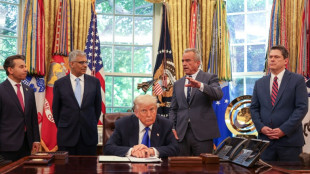 Trump orders curb on virus research he blames for Covid pandemic
Trump orders curb on virus research he blames for Covid pandemic
-
'Makes no sense': Hollywood shocked by Trump's film tariffs announcement

-
 First day of jury selection wraps in Sean Combs sex crimes trial
First day of jury selection wraps in Sean Combs sex crimes trial
-
Dominican Republic reports sharp rise in Haitian migrant deportations
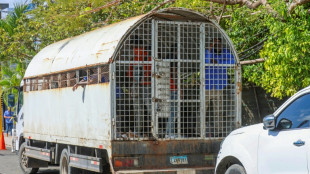
-
 Mennonite communities raise hackles in Peruvian Amazon
Mennonite communities raise hackles in Peruvian Amazon
-
Dominican Republican reports sharp rise in Haitian migrant deportations
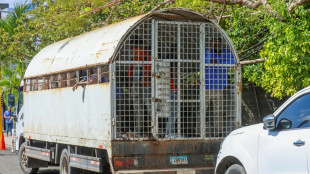
-
 Stars shine at Met Gala, showcasing Black dandyism
Stars shine at Met Gala, showcasing Black dandyism
-
Ireland captain Doris doubtful for Lions tour due to shoulder injury

-
 Pentagon chief orders 20% cut in number of top officers
Pentagon chief orders 20% cut in number of top officers
-
'New superstar' Zhao's world title heralds Chinese snooker revolution

-
 OpenAI abandons plan to become for-profit company
OpenAI abandons plan to become for-profit company
-
Ford sees $1.5 bn tariff hit this year, suspends 2025 forecast

-
 Snooker star Zhao: from ban to Chinese sporting history
Snooker star Zhao: from ban to Chinese sporting history
-
Zhao makes history as China's first World Snooker champion

-
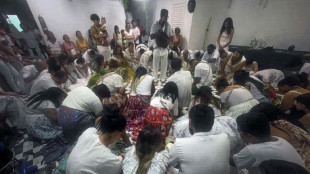 Brazilian ritual root gets second life as potential anti-depressant
Brazilian ritual root gets second life as potential anti-depressant
-
Israel says 'most' Gazans to be displaced in expanded operation
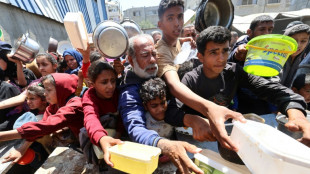
-
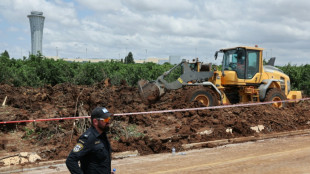 Israel strikes Yemen after Huthi attack on Ben Gurion airport
Israel strikes Yemen after Huthi attack on Ben Gurion airport
-
'It's time': Popovich passes Spurs torch to Johnson

-
 Cummins heroics in vain as rain forces Hyderabad out of IPL playoff race
Cummins heroics in vain as rain forces Hyderabad out of IPL playoff race
-
Huthis say US, Israel bomb Yemen after strike on Israeli airport
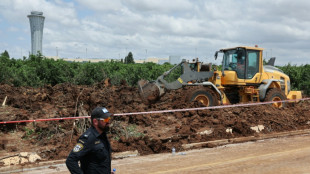
-
 Lewandowski on bench for Barca's showdown with Inter, says coach Flick
Lewandowski on bench for Barca's showdown with Inter, says coach Flick
-
Pricing birdsong: EU mulls nature credits to help biodiversity

-
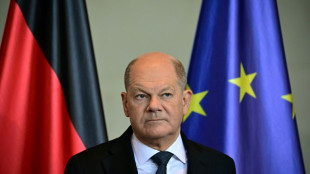 Scholz vows continued German support in last call with Zelensky
Scholz vows continued German support in last call with Zelensky
-
UK kicks off party to mark 80 years since end of WWII
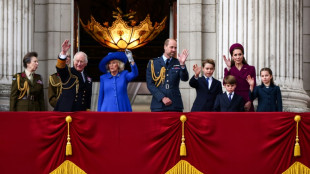
-
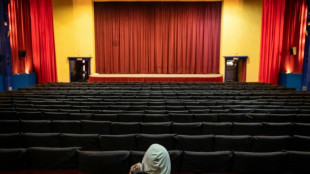 Global film industry reels from Trump tariff announcement
Global film industry reels from Trump tariff announcement
-
Cardinals assemble to elect pope and set course for church
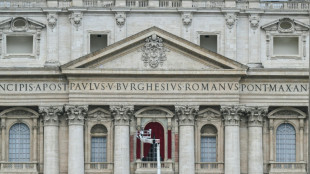
-
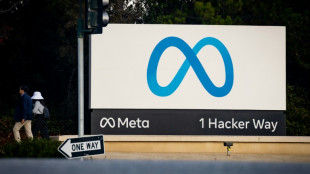 Meta content moderator cuts over 2,000 jobs in Spain: union
Meta content moderator cuts over 2,000 jobs in Spain: union
-
Pakistan conducts second missile test, India readies civil defence drills
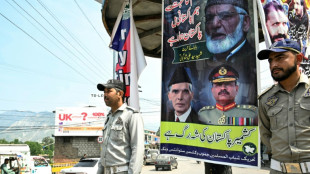
-
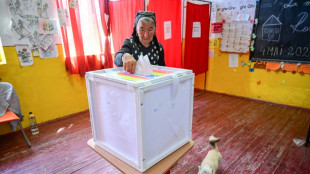 Pro-EU or pro-Trump? Romania faces decisive choice in vote
Pro-EU or pro-Trump? Romania faces decisive choice in vote
-
Nazi surrender site sets the scene for Wim Wenders short film
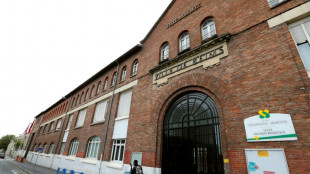
-
 French court backs Olympics choreographer in cyberbullying case
French court backs Olympics choreographer in cyberbullying case
-
Romania run-off pits pro-Trump nationalist against centrist mayor
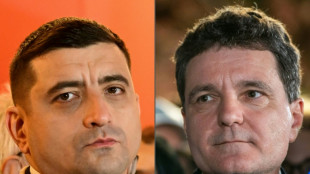
-
 South Africa's Rabada back in IPL after serving drug ban
South Africa's Rabada back in IPL after serving drug ban
-
Pride and excitement as UK crowds celebrate 80 years since WWII's end
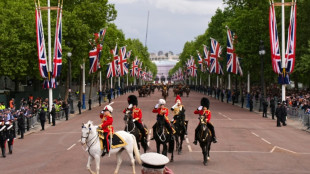
-
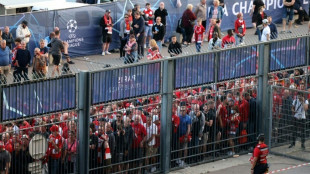 Ex-French interior minister Darmanin apologises for 2022 Champions League fiasco
Ex-French interior minister Darmanin apologises for 2022 Champions League fiasco
-
Zhao on brink of becoming China's first World Snooker champion
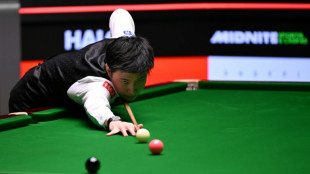

Iraqi markets a haven for pedlars escaping Iran's economic woes
Every Friday, Alawi crosses the border from Iran into Iraq to sell his produce in the markets of Basra, which serve as a haven for Iranians grappling with economic sanctions.
He is just one of many Iranian pedlars who endure the arduous journey into southern Iraq through the Chalamja border crossing.
They bring essential goods such as chicken, eggs, cooking oil and household items to sell at low prices, hoping for a profit that would be unimaginable back home due to sharp currency depreciation and soaring inflation.
"The situation is difficult due to the embargo," Alawi said, referring to Western sanctions against Iran.
Asking to withhold his surname for fear of repercussions back home, the 36-year-old said he had not given up easily on his country, and had tried to sell his produce in a market there.
"There were no customers, and the products would spoil, so we had to throw them away and end up losing" money, he told AFP.
Instead, for the past seven years, he has been travelling to Iraq where he sells okra in summer and dates in winter, earning between $30 and $50 a day –- much more than he could make at home.
"When we exchange Iraqi money" for Iranian rials, "it's a lot," the father of two said.
"We can spend it in five days or even a week," he added.
- 'A lifeline' -
After a brief period of relief from sanctions in exchange for curbs on Iran's nuclear programme, US President Donald Trump reimposed the biting measures during his first term in 2018.
Ever since, the value of the Iranian rial has plunged, fuelling high inflation and unemployment.
Prices soared last month by more than 32 percent compared to March the previous year, according to official figures.
Trump announced this week that his administration would restart negotiations with Iran over its nuclear programme, with talks to take place in Oman on Saturday.
Iranian Foreign Minister Abbas Araghchi has said his country's chief aim is for US sanctions to be lifted.
In the meantime, Basra's markets continue to bustle with Iranian vendors.
At the Friday market, bags of rice were stacked on plastic crates next to bottles of detergent.
While some vendors chatted with customers, others dozed off beside their shopping bags, rubbing off the weariness of a long journey.
Hayder al-Shakeri of the London-based Chatham House think-tank's Middle East and North Africa programme said informal cross-border trade "has expanded significantly over the past decade as sanctions on Iran have increasingly impacted everyday life."
Basra's proximity to Iran's Khuzestan province, where many residents speak Arabic and share cultural values with Iraq, makes it a primary target for mostly working-class Iranian vendors, Shakeri said.
Among them are women and elderly men whose livelihoods have been severely impacted by inflation, he said, calling the cross-border trade "a vital lifeline".
"Earning in more stable currencies like the Iraqi dinar or even US dollars provides a financial buffer" against the devaluated rial, he added.
- Better and cheaper -
Iran wields considerable political influence in Iraq and is a major trade partner for the country, the second-largest importer of non-oil Iranian goods.
Trade between the two countries amounts to tens of billions of dollars.
Milad, 17, and his mother have been selling household essentials in Basra for the past two years. Fearing a worsening situation back home, they recently rented a small shop.
In Iran, "finding work is hard, and the currency is weak," said curly-haired Milad, who declined to give his last name, adding that his cousin has been looking for a job since he graduated.
Iraqi maths professor Abu Ahmad, 55, strolls to the market every Friday, looking for fresh Iranian goods.
"Their geymar is better than ours," he said, referring to the cream Iraqis have with honey for breakfast.
It is also cheaper.
"They sell it for 12,000 dinars ($8)" compared to an Iraqi price of 16,000, he added.
Shakeri from Chatham House warned that local vendors "resent the competition", and Iraqi security forces sometimes remove Iranians, though they know they will eventually return.
Umm Mansur, a 47-year-old Iranian mother of five, has had a bitter experience since she joined other pedlars six months ago.
At the border, "they insult and mistreat us," she said.
Other pedlars have described similar experiences, saying they were held up for hours at the crossing.
Umm Mansur said she is willing to overlook the mistreatment to earn four times what she would at home.
"In Iran, there is no way to make a living," she said.
O.Norris--AMWN